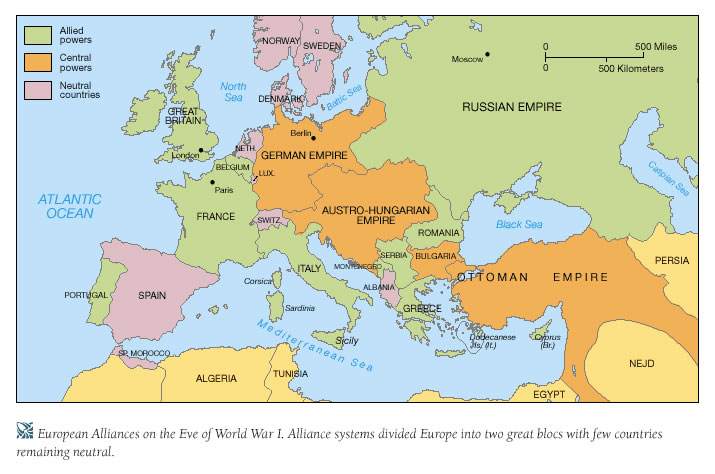After World War I America followed a policy of isolation, this left France and
Britain to be the peace keepers. At the start they got on well with Italy and
jointly opposed Hitler's attempts to unite Germany and Austria into the one
state. However Italy's plans of expansion contrasted with their ideas of
keeping the status quo and Britain and France openly denounced after Italy's
invasion of Abyssinia causing Italy to align themselves with Germany. This was
the start and with the support of Italy, Germany was able to achieve its goal
of Anschluss with Austria. Hitler next began asking for the Sudetenland from
Czechoslovakia. Although Britain and France tried to stop him at first the
British prime minister Neville Chamberlain followed a policy of appeasement
towards Hitler, France was to afraid to fight Germany on their own so they
agreed that Hitler could have the Sudetenland if he promised not to take any
more land. Hitler quickly broke this agreement and in March 1939 he invaded the
rest of Czechoslovakia creating a puppet government in Slovakia and encouraging
the Polish and Hungarians to take the land which they had historic ties to.
Czechoslovakia quickly fell as all of their defenses had been in the Sudetland
which they had been forced to give to Germany.
It became clear to Britain and France that Germany
would keep trying to take more land so they began rearming. The USSR who had
also tried to save Czechoslovakia was disgusted by Britain's and France's
policy of appeasement. They became afraid that Britain and France would sell
them out in the same way so they started pursuing better relations with
Germany. Hitler agreed to the Molotov-Ribbentrop pact with them, which was a
non aggression pact they secretly divided eastern Europe between them, on the
23rd of August 1939. In April 1939 Italy invaded the kingdom of Albania eager
to gain a foothold in the Balkans. The Germans and Italians signed the pact of
steel on the 22nd of May 1939 firmly entrenching their cooperation.
After the allies failed to act when Germany invaded
Czechoslovakia, Hitler became convinced that they were to cowardly to fight a
war so when he invaded Poland on the 1st of September 1939 he was surprised
that France and Britain honored their guarantee. Italy choose not to join the
war as they were not ready even though the Pact of Steel stated they were
supposed to help Germany in times of war. The USSR invaded eastern Poland
claiming they were protecting it from Germany. The 2nd World War had begun.






